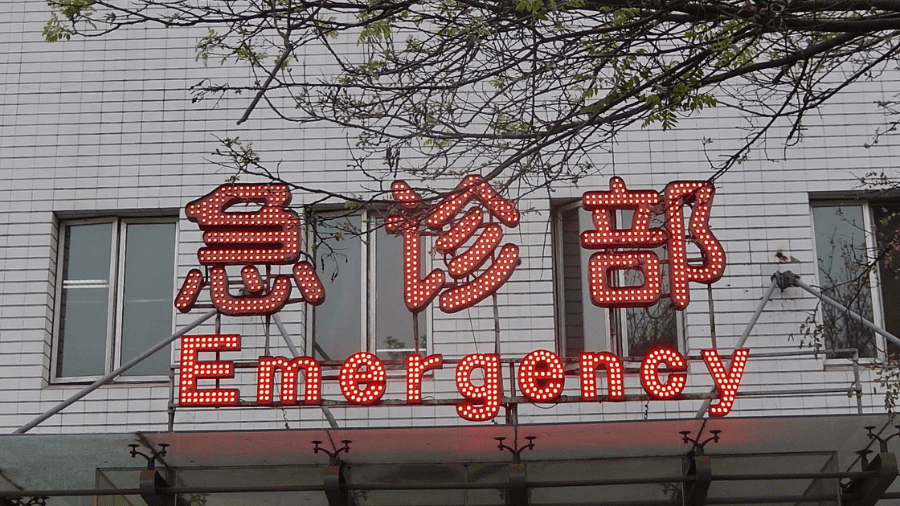This article originally appeared in the Globe and Mail.
By Charles Burton, January 6, 2023
Chinese President Xi Jinping’s new year’s message is usually jingoistic and stern. But this year, after his government scrambled to abandon its draconian COVID-19 measures last month in the wake of widespread protests, Mr. Xi sounded defensive and patronizing.
“The concerns of the people are what I always care about,” he said, “and the aspirations of the people are what I always strive for.”
That reflects the marked shift in fortunes that Mr. Xi has experienced over the last three months. At the Chinese Communist Party Congress in October, the strongman must have felt that he was establishing his place among the great emperors of China’s history, as he banished his remaining political rivals and cemented his grip by claiming an unprecedented third term as general secretary of the Communist Party, president of the country, and leader of the military. But he could never have foreseen how domestic and international factors would abruptly foil his signature “Chinese Dream of national rejuvenation”: his plan to replace the world’s liberal democratic international rules-based order with a China-centred “community of the common destiny of mankind” by 2050.
Mr. Xi’s hubristic power grab and his gross misjudgment of the social costs of his “zero COVID” pandemic approach are only part of the story. Vladimir Putin’s fixation with sticking it to the West and avenging the Soviet Union’s collapse – his effort to subordinate Ukraine representing his first step in restoring a Russian empire – parallels Mr. Xi’s obsession to redress what he perceives as China’s loss of face and diminished national prestige by the rise of the West over the decades. But Russia’s stumbles in Ukraine reminded the world that China’s own ambitions of annexing of democratic Taiwan are not inevitable. Indeed, the Western alliance strengthened its presence in the Indo-Pacific – including the QUAD, AUKUS, the 14-nation Indo-Pacific Framework for Prosperity, and NATO’s enhanced military presence there – to prevent China’s neighbours from becoming acolytes in Mr. Xi’s geostrategic expansionism, through China’s Belt and Road Initiative.
Here in Canada, the era of appeasing China is ending fast. Canadian cabinet ministers now speak of “decoupling,” “friend-shoring,” “supply chain resilience” (especially in critical minerals) and efforts to prevent the importing of Chinese products made with Uyghur forced labour. Ottawa has also banned Huawei from Canada’s 5G networks, and worked to prevent Western technology from being co-opted for China’s weapon-development, surveillance and espionage programs.
Of course, the journey never ends. Despite the Canadian government’s new Indo-Pacific Strategy, which is aimed at challenging Beijing’s malign schemes here and abroad, there are vested interests in this country who will seek to neutralize that effort.
But Canada will no longer tolerate China interfering in our elections and subverting our policy. We can expect Canada to take firm action against the Chinese government’s harassment of Canadians who are Tibetans or Uyghurs, or who champion human rights and democracy. We will no longer accept the “hiding-in-plain-sight” espionage operations of the Chinese military and police here. China’s reported campaigns to erode the loyalty of Canadians of Chinese origin – through disinformation and racism over WeChat and Chinese-language media – will be addressed as a matter of urgency.
And Mr. Xi is likely distracted at the moment. He faces a major crisis at home over the tragic chaos unfolding in hospitals and funeral homes across China after the abrupt relaxing of COVID-19 restrictions. Thousands of elderly people are now dying every day, despite years of draconian lockdowns and associated economic hardship. State-controlled TV news has stopped broadcasting the daily charts that compared China’s COVID-19 case and death numbers to those of the U.S. Even basic medicines to relieve fever are in desperately short supply, putting the lie to Mr. Xi’s three years of hectoring that Beijing’s repressive autocracy was the far superior way to protect people from the ravages of an airborne disease.
Abandoning all caution, Chinese citizens infuriated by the suffering and abandonment of their elders are posting so many social media rants condemning the callousness of Mr. Xi’s policies and leadership that censors are having trouble keeping up.
China’s surging grassroots fury is a threat that the regime could never have expected. If the Chinese Communist Party under Mr. Xi becomes more and more at odds with the popular will of the people, tensions within China will keep rising. Canada, with its positive and timely shift in China policy, should now also prepare itself for the potential consequences of political instability that may come sooner than we foresaw.
Charles Burton is a senior fellow at the Macdonald-Laurier Institute, non-resident senior fellow of the European Values Center for Security Policy in Prague, and former diplomat at Canada’s embassy in Beijing.






